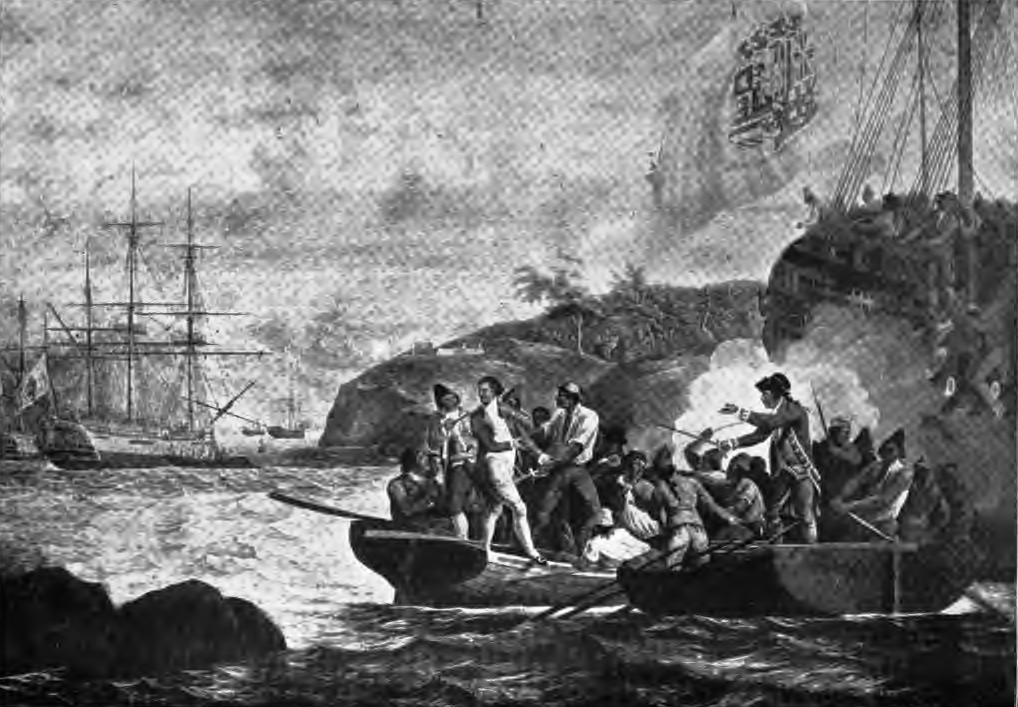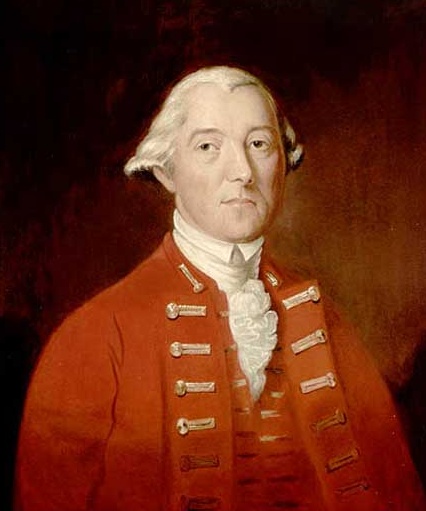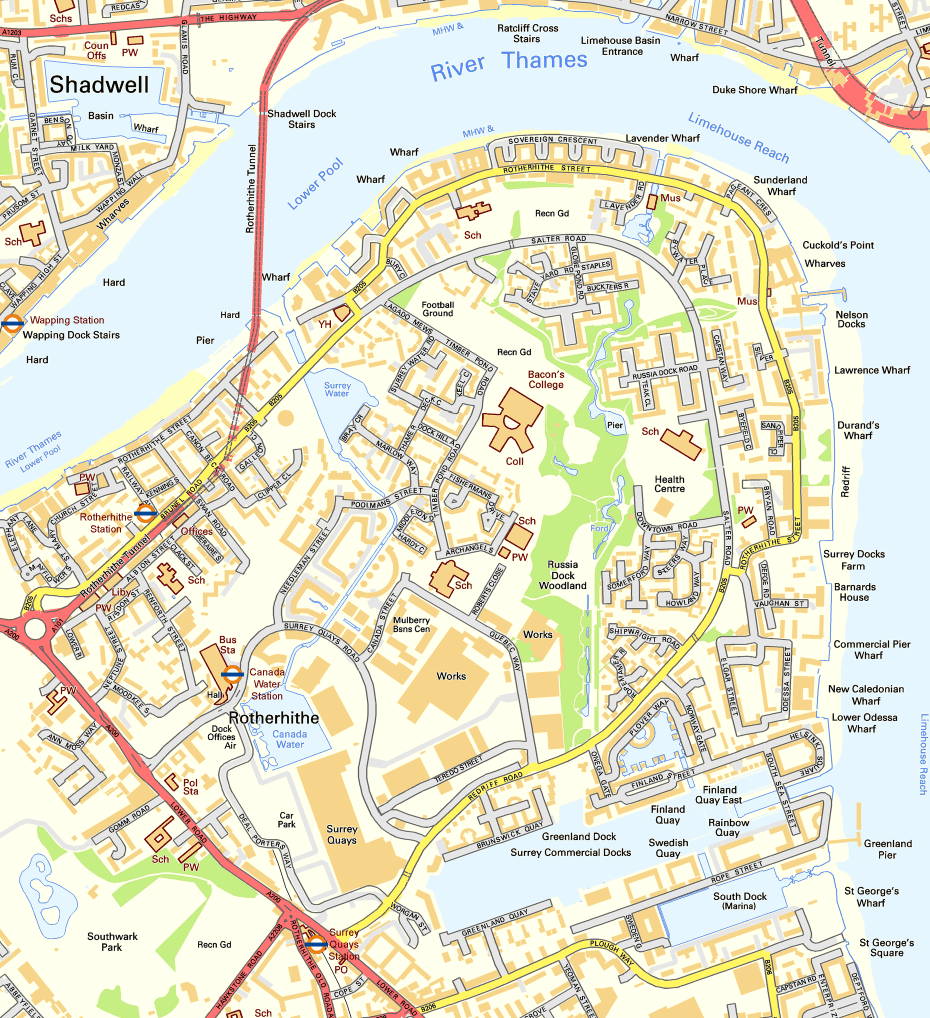|
HMS Alligator (1787)
HMS ''Alligator'' was a 28-gun ''Enterprise''-class sixth rate frigate of the Royal Navy. She was originally ordered during the American War of Independence but was completed too late to see service during the conflict. Instead she had an active career during the French Revolutionary and Napoleonic Wars. Commissioned during the last few years of peace prior to the outbreak of war with France, ''Alligator'' served in British waters, making trips as far afield as the Mediterranean and the North American coast. During the period of conflict that began in 1793, ''Alligator'' spent a considerable amount of time in the West Indies under a number of commanders, and was effective in anti-privateer operations. Despite this she was laid up for a period starting in 1795, and was reduced to a 16-gun troopship in 1800. Further service followed in the West Indies, supporting the fleet and army movements around the islands, and taking part in the capture of several French frigates. She was ag ... [...More Info...] [...Related Items...] OR: [Wikipedia] [Google] [Baidu] |
Kingdom Of Great Britain
The Kingdom of Great Britain (officially Great Britain) was a Sovereign state, sovereign country in Western Europe from 1 May 1707 to the end of 31 December 1800. The state was created by the 1706 Treaty of Union and ratified by the Acts of Union 1707, which united the kingdoms of Kingdom of England, England (which included Wales) and Kingdom of Scotland, Scotland to form a single kingdom encompassing the whole island of Great Britain and its outlying islands, with the exception of the Isle of Man and the Channel Islands. The unitary state was governed by a single Parliament of Great Britain, parliament at the Palace of Westminster, but distinct legal systems – English law and Scots law – remained in use. The formerly separate kingdoms had been in personal union since the 1603 "Union of the Crowns" when James VI of Scotland became King of England and King of Ireland. Since James's reign, who had been the first to refer to himself as "king of Great Britain", a political un ... [...More Info...] [...Related Items...] OR: [Wikipedia] [Google] [Baidu] |
Privateer
A privateer is a private person or ship that engages in maritime warfare under a commission of war. Since robbery under arms was a common aspect of seaborne trade, until the early 19th century all merchant ships carried arms. A sovereign or delegated authority issued commissions, also referred to as a letter of marque, during wartime. The commission empowered the holder to carry on all forms of hostility permissible at sea by the usages of war. This included attacking foreign vessels and taking them as prizes, and taking prize crews as prisoners for exchange. Captured ships were subject to condemnation and sale under prize law, with the proceeds divided by percentage between the privateer's sponsors, shipowners, captains and crew. A percentage share usually went to the issuer of the commission (i.e. the sovereign). Privateering allowed sovereigns to raise revenue for war by mobilizing privately owned armed ships and sailors to supplement state power. For participants, privateerin ... [...More Info...] [...Related Items...] OR: [Wikipedia] [Google] [Baidu] |
North Sea
The North Sea lies between Great Britain, Norway, Denmark, Germany, the Netherlands and Belgium. An epeiric sea on the European continental shelf, it connects to the Atlantic Ocean through the English Channel in the south and the Norwegian Sea in the north. It is more than long and wide, covering . It hosts key north European shipping lanes and is a major fishery. The coast is a popular destination for recreation and tourism in bordering countries, and a rich source of energy resources, including wind and wave power. The North Sea has featured prominently in geopolitical and military affairs, particularly in Northern Europe, from the Middle Ages to the modern era. It was also important globally through the power northern Europeans projected worldwide during much of the Middle Ages and into the modern era. The North Sea was the centre of the Vikings' rise. The Hanseatic League, the Dutch Republic, and the British each sought to gain command of the North Sea and access t ... [...More Info...] [...Related Items...] OR: [Wikipedia] [Google] [Baidu] |
Guy Carleton, 1st Baron Dorchester
Guy Carleton, 1st Baron Dorchester (3 September 1724 – 10 November 1808), known between 1776 and 1786 as Sir Guy Carleton, was an Anglo-Irish soldier and administrator. He twice served as Governor of the Province of Quebec, from 1768 to 1778, concurrently serving as Governor General of British North America in that time, and again from 1785 to 1795. The title Baron Dorchester was created on 21 August 1786. He commanded British troops in the American War of Independence, first leading the defence of Quebec during the 1775 rebel invasion, and the 1776 counteroffensive that drove the rebels from the province. In 1782 and 1783, he led as the commander-in-chief of all British forces in North America. In this capacity he was notable for carrying out the Crown's promise of freedom to slaves who joined the British, and he oversaw the evacuation of British forces, Loyalists and more than 3,000 freedmen from New York City in 1783 to transport them to a British colony. Toward this ... [...More Info...] [...Related Items...] OR: [Wikipedia] [Google] [Baidu] |
Philip Cosby
Admiral Phillips Cosby (1729 – 10 January 1808) was a Royal Navy officer who fought in the American Revolutionary War. Naval career Cosby joined the Royal Navy as an ordinary seaman in 1747. He was given command of a schooner at the Siege of Louisbourg in 1758 and was present at the capture of Quebec in 1759. Promoted to Post Captain in 1761, he commanded HMS ''Hind'' and HMS ''Isis''. In 1766 he was appointed to HMS ''Montreal''. He was receiver general (treasurer) of the Caribbean island of Saint Kitts from 1771 to 1778, a lucrative post which he resigned on the outbreak of the Anglo-French War. In command of HMS Centaur in 1778, he took part in the Battle of Ushant and in command of HMS ''Robust'' in 1779, he took part in the Siege of Charleston in 1780. He also took part in the Battle of Cape Henry The Battle of Cape Henry was a naval battle in the American War of Independence which took place near the mouth of Chesapeake Bay on 16 March 1781 between a British s ... [...More Info...] [...Related Items...] OR: [Wikipedia] [Google] [Baidu] |
Ceuta
Ceuta (, , ; ar, سَبْتَة, Sabtah) is a Spanish autonomous city on the north coast of Africa. Bordered by Morocco, it lies along the boundary between the Mediterranean Sea and the Atlantic Ocean. It is one of several Spanish territories in Africa and, along with Melilla and the Canary Islands, one of only a few that are permanently inhabited by a civilian population. It was a regular municipality belonging to the province of Cádiz prior to the passing of its Statute of Autonomy in March 1995, henceforth becoming an autonomous city. Ceuta, like Melilla and the Canary Islands, was classified as a free port before Spain joined the European Union. Its population consists mainly of Christians and Muslims. There is also a small minority of Sephardic Jews and Sindhi Hindus, the latter of whom originate from current-day Pakistan. Spanish is the only official language, but Darija Arabic is quite prominent as well. Names The name Abyla has been said to have been a Punic ... [...More Info...] [...Related Items...] OR: [Wikipedia] [Google] [Baidu] |
Spithead
Spithead is an area of the Solent and a roadstead off Gilkicker Point in Hampshire, England. It is protected from all winds except those from the southeast. It receives its name from the Spit, a sandbank stretching south from the Hampshire shore for . Spithead is long by about in average breadth. Spithead has been strongly defended since 1864 by four Solent Forts, which complement the Fortifications of Portsmouth. The Fleet Review is a British tradition that usually takes place at Spithead, where the monarch reviews the massed Royal Navy. The Spithead mutiny occurred in 1797 in the Royal Navy fleet at anchor at Spithead. It is also the location where sank in 1782 with the loss of more than 800 lives. In popular culture In the operetta ''H.M.S. Pinafore'' by Gilbert and Sullivan Gilbert and Sullivan was a Victorian era, Victorian-era theatrical partnership of the dramatist W. S. Gilbert (1836–1911) and the composer Arthur Sullivan (1842–1900), who jointly crea ... [...More Info...] [...Related Items...] OR: [Wikipedia] [Google] [Baidu] |
The Nore
The Nore is a long bank of sand and silt running along the south-centre of the final narrowing of the Thames Estuary, England. Its south-west is the very narrow Nore Sand. Just short of the Nore's easternmost point where it fades into the channels it has a notable point once marked by a lightship on the line where the estuary of the Thames nominally becomes the North Sea. A lit buoy today stands on this often map-marked divisor: between Havengore Creek in east Essex and Warden Point on the Isle of Sheppey in Kent. Until 1964 it marked the seaward limit of the Port of London Authority. As the sandbank was a major hazard for shipping coming in and out of London, in 1732 it received the world's first lightship. This became a major landmark, and was used as an assembly point for shipping. Today it is marked by Sea Reach No. 1 Buoy. The Nore is an anchorage, or open roadstead, used by the Royal Navy's North Sea Fleet, and to its local Command. It was the site of a notorious ... [...More Info...] [...Related Items...] OR: [Wikipedia] [Google] [Baidu] |
Revolutionary France
The French Revolution ( ) was a period of radical political and societal change in France that began with the Estates General of 1789 and ended with the formation of the French Consulate in November 1799. Many of its ideas are considered fundamental principles of liberal democracy, while phrases like ''liberté, égalité, fraternité'' reappeared in other revolts, such as the 1917 Russian Revolution, and inspired campaigns for the abolition of slavery and universal suffrage. The values and institutions it created dominate French politics to this day. Its causes are generally agreed to be a combination of social, political and economic factors, which the ''Ancien Régime'' proved unable to manage. In May 1789, widespread social distress led to the convocation of the Estates General, which was converted into a National Assembly in June. Continuing unrest culminated in the Storming of the Bastille on 14 July, which led to a series of radical measures by the Assembly, inc ... [...More Info...] [...Related Items...] OR: [Wikipedia] [Google] [Baidu] |
Spanish Armament
The Nootka Crisis, also known as the Spanish Armament, was an international incident and political dispute between the Nuu-chah-nulth Nation, the Spanish Empire, the Kingdom of Great Britain, and the fledgling United States of America triggered by a series of events revolving around sovereignty claims and rights of navigation and trade. It took place during the summer of 1789 at the Spanish outpost Santa Cruz de Nuca, in Nootka Sound on Vancouver Island in present-day British Columbia, Canada. The commander of the outpost, Jose Esteban Martínez, seized some British commercial ships which had come for the maritime fur trade and to build a permanent post at Nootka Sound. Public outcry in Britain led to the mobilization of the Royal Navy, and the possibility of war. Both sides called upon allies, the Dutch joined the side of Britain; Spain mobilized their navy and her key ally France also mobilized theirs, but the latter soon announced they would not go to war. Without French help, ... [...More Info...] [...Related Items...] OR: [Wikipedia] [Google] [Baidu] |
Sir Isaac Coffin, 1st Baronet
Admiral of the Blue Sir Isaac Coffin, 1st Baronet, (also Coffin-Greenly; 16 May 1759 – 23 July 1839), was an officer of the Royal Navy who served during the American War of Independence and the French Revolutionary and Napoleonic Wars. Coffin was born in Boston and served in the navy on a number of ships during the War of Independence. He fought at Cape Henry with Arbuthnot and at St. Kitts with Hood, eventually being promoted to command a number of small ships on the American coast. Despite his rise through the ranks, he clashed occasionally with the naval hierarchy, with the first incident occurring while still a newly commissioned commander aboard . An incident over unqualified lieutenants led to his court-martial, though he was acquitted. A more serious incident occurred after the end of the war with America, when Coffin was particularly active off the Canadian coast. A charge was brought of issuing false musters, and though the practice was endemic in the navy, led to hi ... [...More Info...] [...Related Items...] OR: [Wikipedia] [Google] [Baidu] |
Rotherhithe
Rotherhithe () is a district of south-east London, England, and part of the London Borough of Southwark. It is on a peninsula on the south bank of the Thames, facing Wapping, Shadwell and Limehouse on the north bank, as well as the Isle of Dogs to the east of the Thames and is a part of the London Docklands, Docklands area. It borders Bermondsey to the west and Deptford to the south east. Rotherhithe has a long history as a port, with Elizabethan era, Elizabethan shipyards and working docks until the 1970s. In the 1980s, the area along the river was redeveloped as housing through a mix of warehouse conversions and new-build developments. Following the arrival of the Jubilee line in 1999 (giving quick connections to the West End of London, West End and to Canary Wharf) and the London Overground in 2010 (providing a quick route to the City of London), the rest of Rotherhithe is now a gentrification, gentrifying residential and commuter area, with urban regeneration progressing arou ... [...More Info...] [...Related Items...] OR: [Wikipedia] [Google] [Baidu] |







